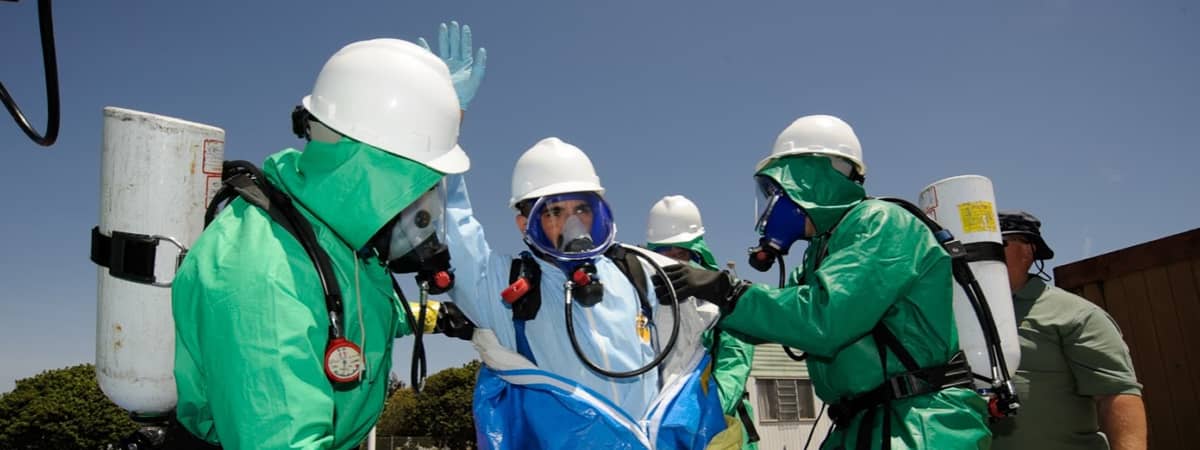Are you interested in learning how businesses can become more sustainable and socially responsible? If so, a career as an environmental science and protection technician may be the perfect fit for you!
Allan Hancock College’s environmental health and safety program provides students practical knowledge and hands-on experience in areas such as assessing environmental impacts, sustainability and public health, managing environmental regulatory compliance, monitoring and collecting water, soil and air samples, and workplace safety and hazard analysis.
Students learn how to research and interpret environmental health and safety laws and regulations. Then, they apply their knowledge to develop and implement environmental sustainability and workplace safety programs of their own creation.
Environmental science and protection technicians are employed in both the public and private sectors of agriculture, aerospace, construction, engineering, petroleum, retail and more. Whether you see yourself working outdoors, in a laboratory, in an office, or a combination of these environments, this is the right career for you. Your career as an environmental science and protection technician starts here!
This program will help you to:
- interpret environmental laws and regulations
- plan and manage environmental and safety programs
- work as a team to identify and assess environmental risks
- formulate solutions to environmental and workplace hazards
- conduct a wide range of environmental monitoring and sampling investigations with precision and accuracy
- effectively communicate processes and results of environmental and workplace hazard analysis
Degrees and Certificates Offered
Each program has unique requirements. The order in which you take courses may affect your completion time. Visit the links below to view the program requirements and a general semester-by-semester course schedule.
To view all available degrees and certificates visit the Allan Hancock College course catalog.
You might also be interested in...
Contact Information
Coordinator
Kristy Treur
805-922-6966 ext. 5243
ktreur@hancockcollege.edu
Instructional Assistant
Leticia Segoviano
805-735-3366 ext. 5466
leticia.segoviano@hancockcollege.edu
Administrative Assistant II
805-922-6966 ext. 3335
Department Chair
Saad Sadig
805-922-6966 ext. 3488
ssadig@hancockcollege.edu
Dean, Academic Affairs
Thomas Lamica
805-922-6966 ext. 3261
thomas.lamica@hancockcollege.edu


